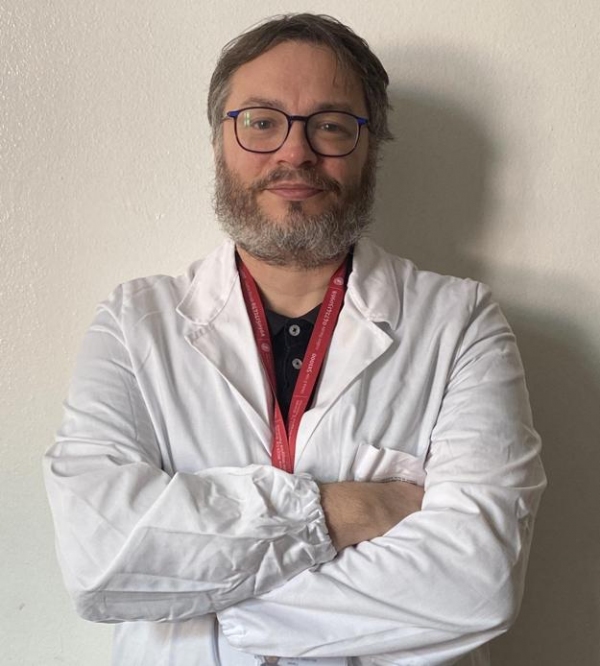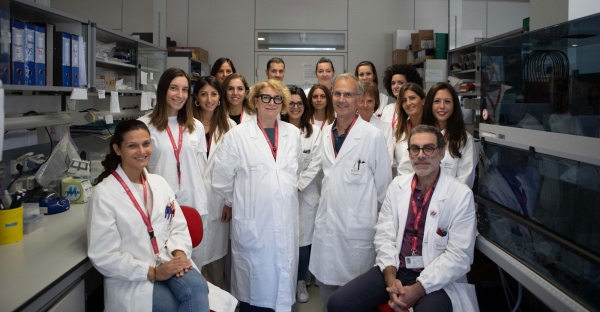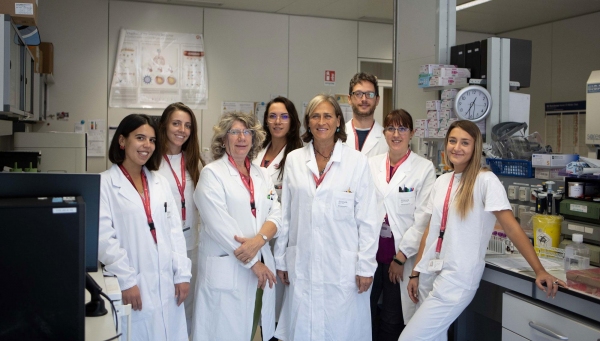Integrated approach to the study of hematological diseases and the immune system /
Clinical Pathology
Head
Unit
Flow Cytometry and Cell Sorting Facility
The laboratory has expertise and advanced technology in cytofluorimetry and cell sorting, which are used in research projects studying the behavior of white blood cells (particularly lymphocytes and monocytes) and plasma cells in numerous infectious and oncohematological diseases.
Laboratory of Medical Genetics
Research activities involve the application of state-of-the-art molecular techniques for the study of various genetic and neoplastic diseases. The team supports studies and projects using molecular biology techniques such as DNA/RNA extraction and NGS sequencing.
In addition, the Laboratory has a genetic disease research program dedicated to setting up and refining genomics methods to analyze regions of DNA, which can hardly be studied with current techniques, so as to identify genetic mechanisms underlying diseases whose molecular alterations are unknown and use these techniques in diagnostics in the future as well.
Virology Laboratory
Use of molecular techniques in real-time PCR and sequencing and antibody detection methods to support departmental projects (see ongoing projects).
Microbiology Laboratory
The team provides support for all Foundation studies that require the identification of disease etiological agents and to search for gene determinants of antibiotic resistance using molecular diagnostic platforms (PCR, RT-PCR and/or Sanger sequencing techniques).
It uses Next Generation Sequencing (NGS) techniques for the analysis of bacterial genomes in the context of nosocomial infections and bacterial resistance surveillance, as support for epidemiological investigations, with the aim of monitoring the spread of any epidemic clones.
The study of the intestinal and pulmonary microbiota is performed using NGS techniques by sequencing hypervariable regions of the 16S rDNA gene.
Location of the reference center for Regional Surveillance of Invasive Diseases by Streptococcus pneumoniae, Neisseria meningitidis and Haemophilus influenzae.
Reference Center for Regional Surveillance and Early Identification of Shigatoxin-Producing E. coli Strains Involved in Hemolytic Uremic Syndrome by Molecular Investigation of Pathogenicity Mechanisms of E. coli Responsible for Hemorrhagic Enteritis.
Clinical Biochemistry Laboratory
Development of new methods or application of existing methods to the study of alternative biological fluids (saliva)
- IZLER Lodi
- ISS
- IRCCS San Raffaele Hospital, Infection and Cystic Fibrosis Unit.
- IRCCS San Raffaele Hospital, Emerging Bacterial Pathogens Unit, Division of Immunology, Transplantation and Infectious Diseases
- Tuscan Regional Center for Cystic Fibrosis, Azienda Ospedaliero-Universitaria Meyer, Florence
- IRCCS Children's Hospital Bambino Gesù, Rome
- G. Gaslini Genoa
- Cystic Fibrosis Research Foundation (FCC)
- Verona Cystic Fibrosis Center
Cytofluorimetry: 3 biologists, 1 health researcher, 2 research fellow biologists
Lab Medical Genetics: 2 associate professors, 1 health researcher, 8 biologists, 3 biologists research fellows
Lab Virology: 6 biologists, 1 biologist research fellow
Lab Cystic Fibrosis Microbiology: 6 biologists
Lab Biochemistry: 1 PhD clinical pathologist, 6 biologists, 2 biologists research fellows
—
Other activities in this Research Line
Integrated approach to the study of hematological diseases and the immune system
Dermatology
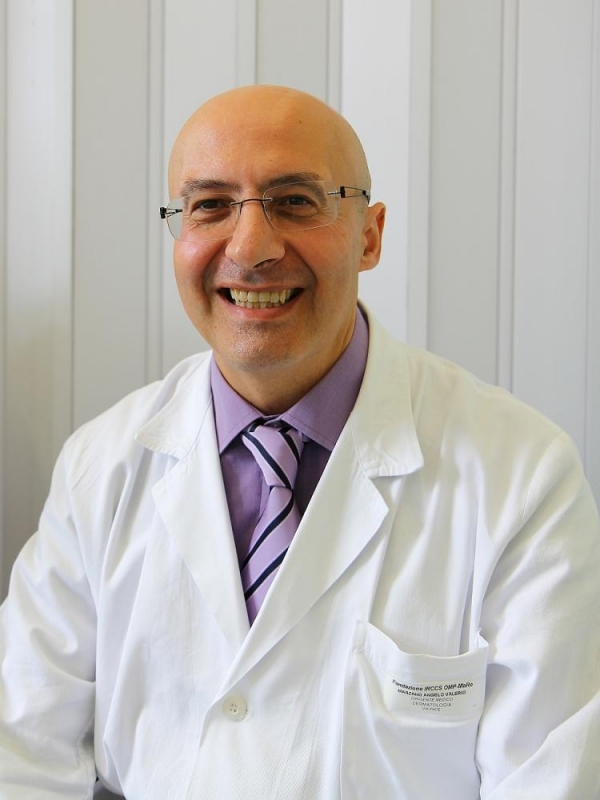
Angelo Valerio Marzano
Hematology

Francesco Passamonti
Infectious Diseases

Alessandra Bandera
Medicine - Hemostasis and Thrombosis
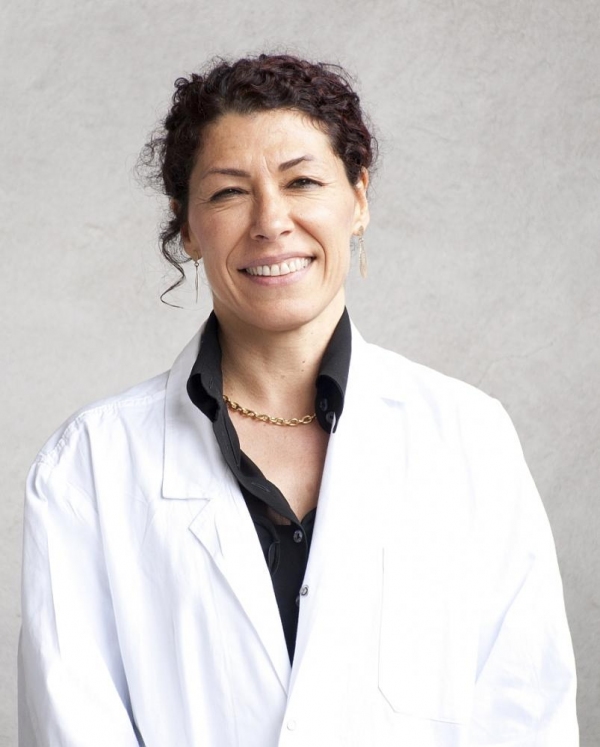
Flora Peyvandi
Medicine - Immunology and Allergology
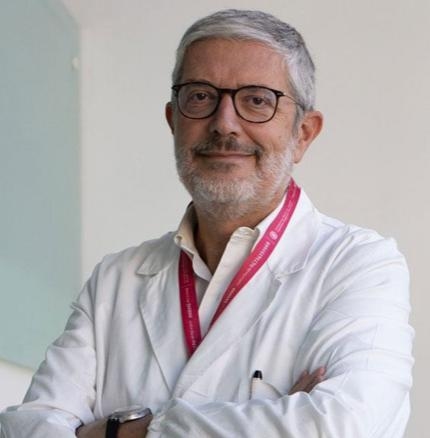
Nicola Montano
Medicine and Metabolic Disease
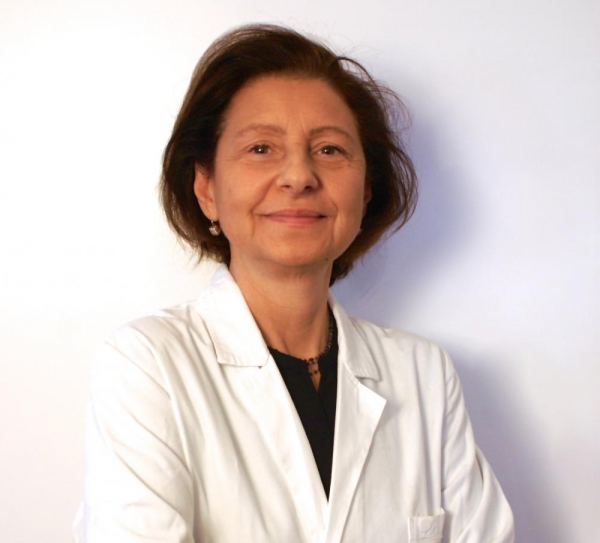
Anna Ludovica Fracanzani
Transfusion Medicine
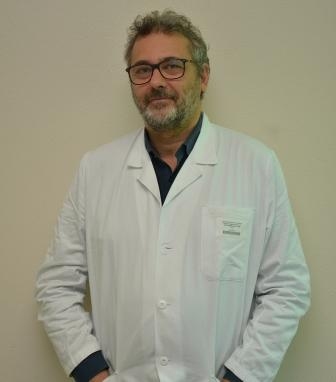
Daniele Prati
Neonatology and Neonatal Intensive Care Unit

Monica Fumagalli
Pediatrics - Immunoreumatology
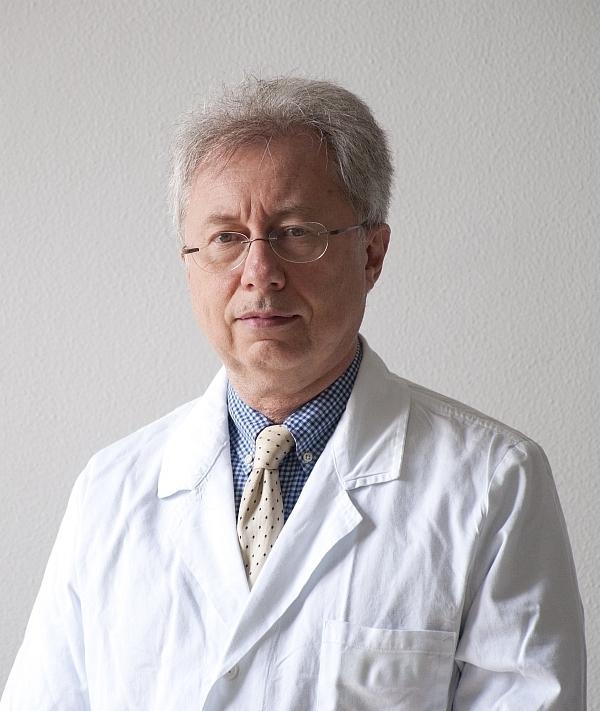
Carlo Virginio Agostoni
Pediatrics - Pneumoinfectiology

Carlo Virginio Agostoni
